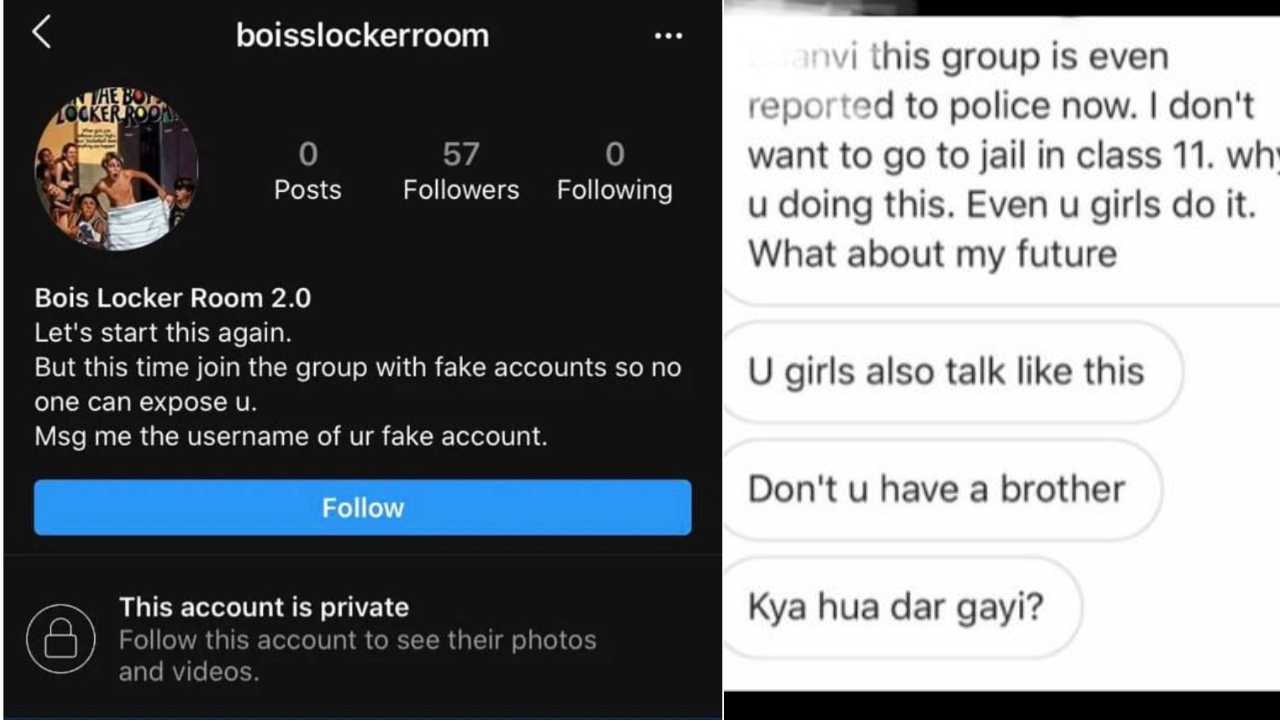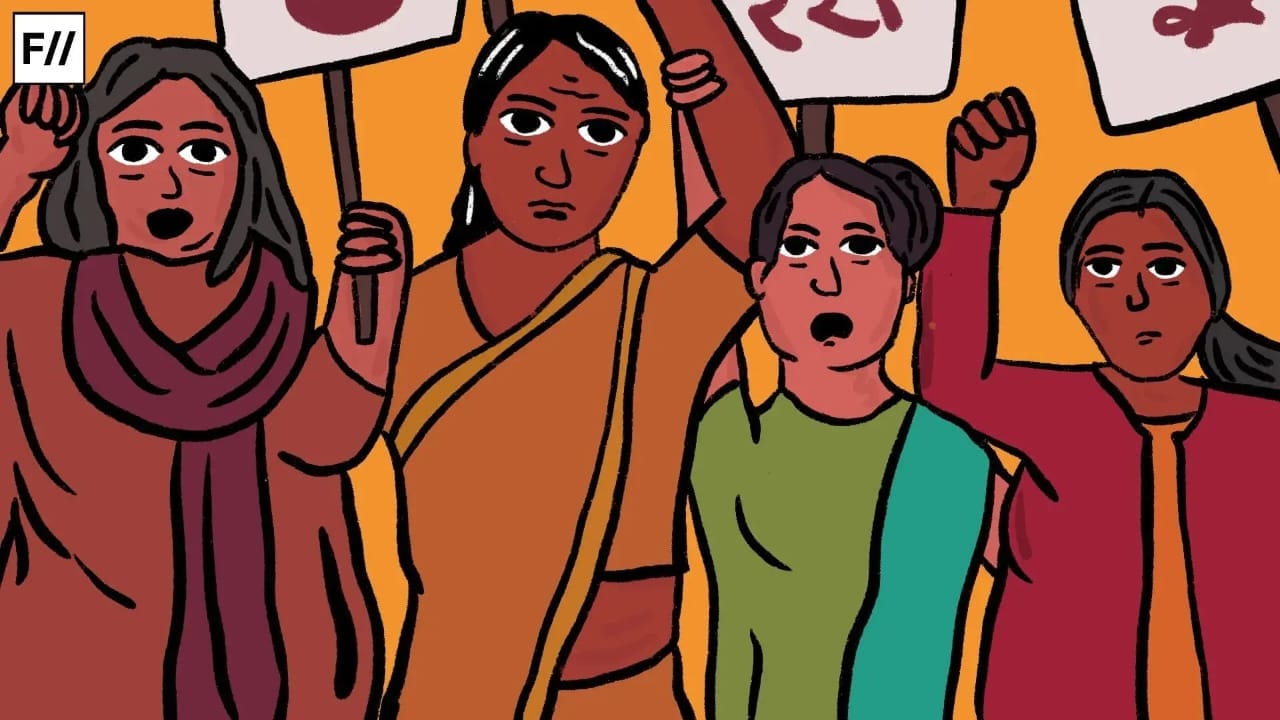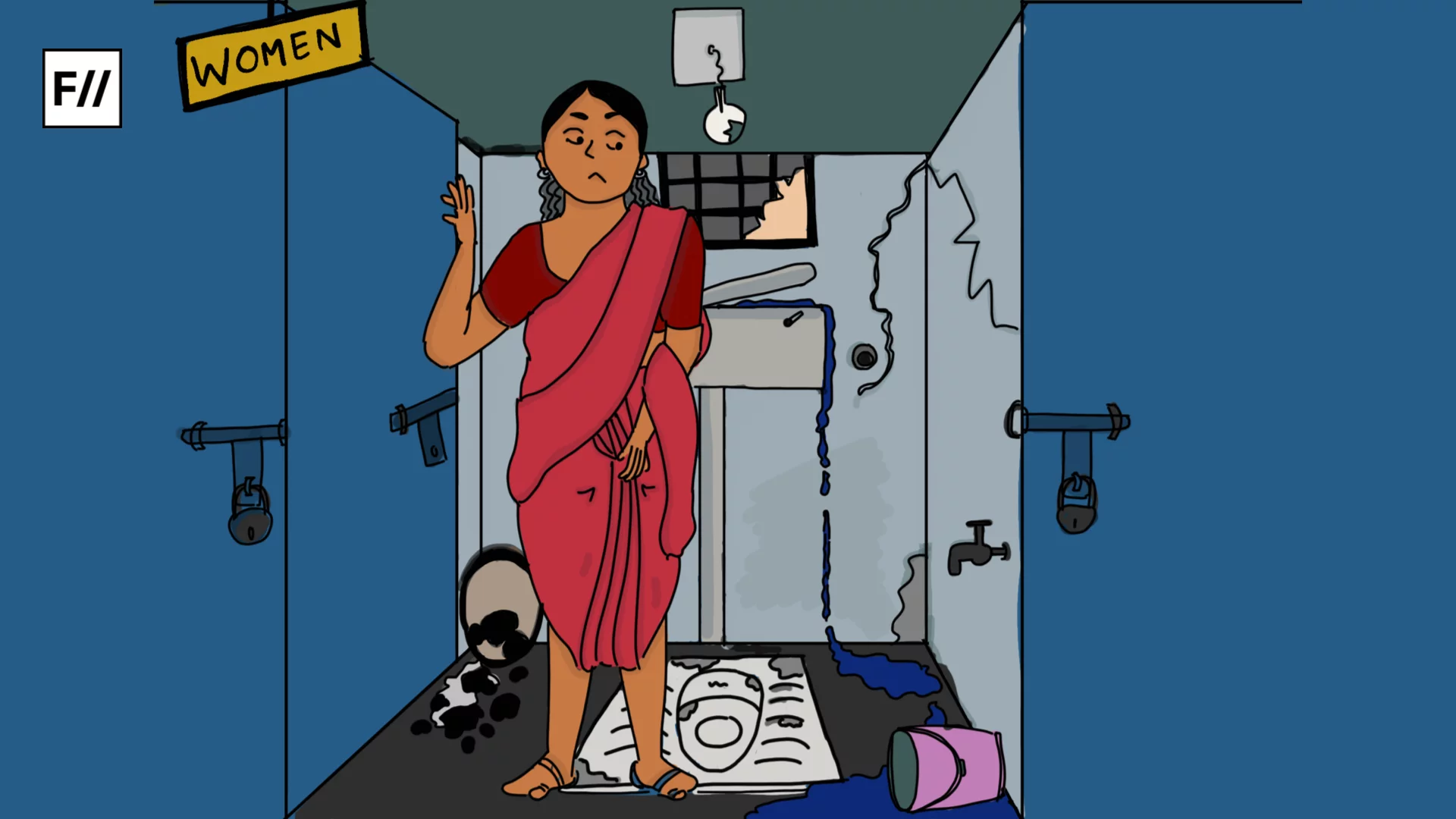Trigger Warning: Rape Threats, Online Violence
On 3rd May 2020, a fairly popular Instagram influencer posted a thread which called out an Instagram page called “Bois locker room.” It was a group made to share photos of underage girls and pass sexually explicit comments about them and their bodies. Another alarming fact is that this page was owned by a bunch of young school kids. They shared pictures of girls they knew, discussed the shape and size of these girls’ “assets” as well as compared and ranked them. Some of the “games” they played on the group includes guessing the age of the girl or their bra size.

The responses that these stories received are even more audacious. Rape threats were made to the one who called them out and shared the stories. They threatened them saying that their nudes would be leaked online. These miscreants also planned to create a new group in order to share more pictures to fight back against “everyone being feminists.” Soon, after each of the participants were called out, they made another account called “Bois Locker Room 2.0” where the bio explicitly asked for only fake accounts to join so that no one can expose them.

The girlfriends and friends of these harassers attempted to protect them by offering alternatives like making the group on Snapchat next time, since messages on Snapchat aren’t backed up. The defense was basically that they were “unconsensual and inactive members who had no clue about the filth and shocking group activities. Their reputation is being shat upon which is completely wrong.” The point was also made that the participants’ Instagram handles or IDs being out in the open was a huge invasion of privacy. Funny how the question of consent and privacy is brought in here. Being passive subjects means they are equally accountable. They chose not to leave the group, they chose to not report it, and even if they did not explicitly engage in the objectification of women, they were complicit to it.

“Nothing Out Of The Ordinary”
I was 13 years old and I was cycling to a grocery shop when a biker slowed down next to me and whistled. I was scared but I kept quiet and cycled away as fast as I could. I still don’t go down that road alone. Every time I walked out of my apartment, there were a group of guys who catcalled, so I started using the longer way out. I was 16 when a guy made kissing noises at me as I was riding back home and followed me all the way back.
The first time was startling but I got used to it. I got used to the catcalling, the harassment, the stalking, the unsolicited dick pictures on social media, the stares, the slurs but I still call myself “lucky” because I’ve never had to go through a confrontational trauma, but had the option to evade it somehow. I still think a 100 times before posting anything on social media because I’m scared for being “sexually explicit” to my limited audience. By calling out “bois locker room,” we are calling out a culture of systemic oppression of women who have consistently only been defined as the object of “desire.”

To all of us, this does not seem as something that is even remotely out of the ordinary. We’ve been subject to our share of “hot or not” lists, “confessions” and troll pages which have used anonymity to further discuss us or what one would do to us, given the opportunity. I am hardly surprised. I am enraged. People might call it an “act of deviance,” given that the boys in question are juvenile, but all of us have seen it happen.
Several feminist social theorists explain how society has been fundamentally constructed in a masculinist way which celebrates misogyny and normalises patriarchy. We have been told to change into pants because there are male family members in the house, we have been asked to wear dupattas lest we may be labelled as “asking for it,” we are expected to think twice before we post that picture of us drinking, etc.; the list is endless.
Also read: What Constitutes Online Sexual Harassment And Are You Guilty Of It? | #DigitalHifazat
Even the schools that we went to have taught us that tying our untied hair and balmed lips are “distracting,” that wearing a skirt without stockings is slutty, and that male gaze is essentially our fault. It is observable in the way girls are taught to behave, act, dress and speak that does not attract unwanted attention; the woman is always responsible for the trauma she receives because “boys will be boys.” The feminist project for years has been to interrupt this cycle of misogyny and sexism. However, cases like these tell us that we are far from achieving any success with respect to our shared project of ensuring women’s security and empowerment.
I still think a 100 times before posting anything on social media because I’m scared for being “sexually explicit” to my limited audience. By calling out “bois locker room,” we are calling out a culture of systemic oppression of women who have consistently only been defined as the object of “desire.”
What Happened Next?
As this incident of bois locker room gained attention, students from across the country, from different universities have found a space to share their experiences. In a society where a survivor finally musters the courage to speak out, since they are usually told to keep quiet, this is a welcome change. It paints a picture of women’s solidarity in a post #MeToo Era where women are finally able to speak up and seek support from a larger community. Students have called out Reddit threads and Instagram accounts in their own universities which solely exist for discussing women and their bodies. Another popular feminist page on Instagram recently used its platform, privilege and reach to provide a safe space for women to talk and share their stories. It started by calling out NLIUs and the extent of slut shaming the students face from their own friends, as well as everyone else. The women were harassed, publicly shamed and bullied for being sexually active or expressive.

Such incidents have repeatedly torn down the banner of #NotAllMen because every man who has been quiet too isF complicit in the furthering the rape culture. Several Instagram influencers have been able to voice out their frustrations against such misogyny. Women from across the country have been able to talk about how even the few “good” men silently watch as their friends engage in violating consent because they don’t want to be labelled as not having a sense of humour. You might also find these good men ‘look out’ for their female friends and ask them to stop posting obscene things because other men, men who are not as “good” as they are might pass vile comments on it. This only brings back the onus of responsibility on the shoulders of the women, rather than holding men accountable for their actions.
As this incident of bois locker room gained attention, students from across the country, from different universities have found a space to share their experiences. In a society where a survivor finally musters the courage to speak out (when they are usually told to keep quiet), this is a welcome change. It paints a picture of women’s solidarity in a post #MeToo Era where women are finally able to speak up and seek support from a larger community.
Looking For Answers
Patriarchy is very deeply ingrained in all of us regardless of our gender but cis heterosexual men benefit from it the most. They are ones who have the privilege of keeping quiet and walking away to protect their friendship or saving their reputation. They are not the ones who are asked not to be a distraction to the girls or they are not the ones who feel unsafe in their own homes. Men are being called out for being conducive to furthering this toxic culture. It is not enough if you make pseudo-intellectual arguments about how feminists should be called humanists; you need to be the ones standing up against toxic masculinity to shut down misogynistic jokes when they are cracked.
Also read: Safe And Consensual Sexting During Lockdown: An Alternative For Sex?
There is a miniscule minority of men who do call out such perpetrators, but we are trying to acknowledge and fight a larger structural issue here. It is time to introspect on your own subtle behaviours that have been shaped as a result of the male privilege you grew up with. There is no defense anymore. No man is taught to stop making atrocious groups like these, but all girls are asked to not use social media because evidence suggests that they are more likely to be harassed, and it is their responsibility to stay safe in a world that is so openly unsafe for women. Men need to feel uncomfortable with their privilege; you need to put yourself under scrutiny and direct your anger and frustration towards creating a safer future for the less privileged.
Featured Image Source: NewsD




